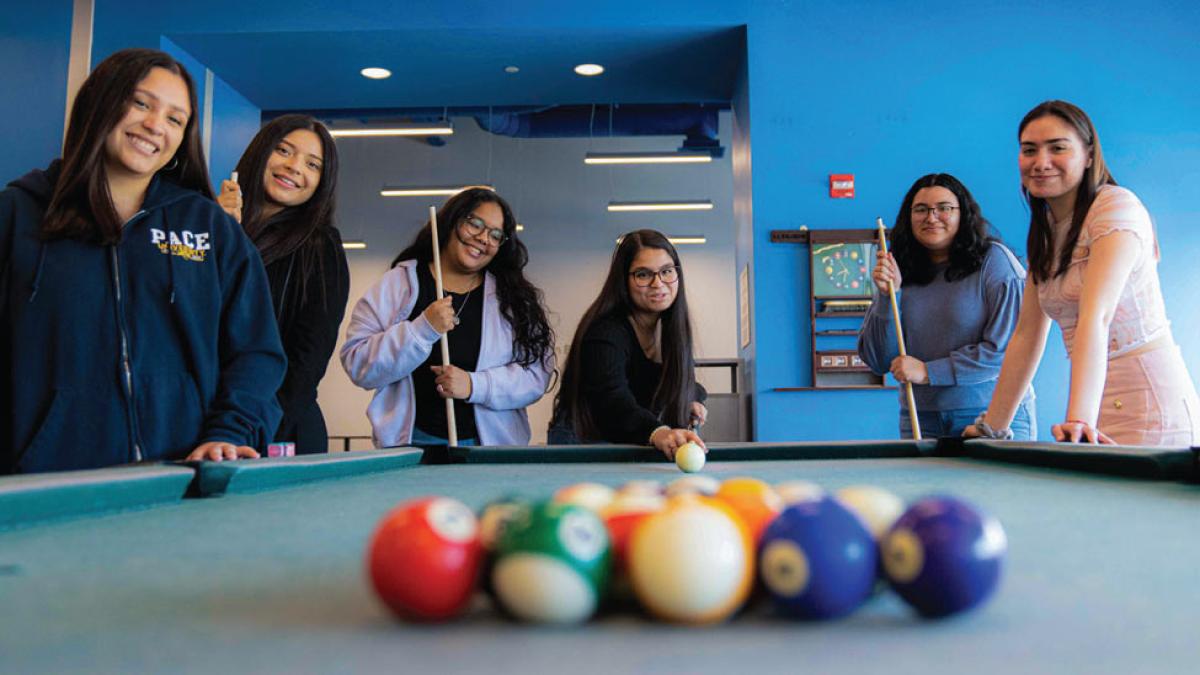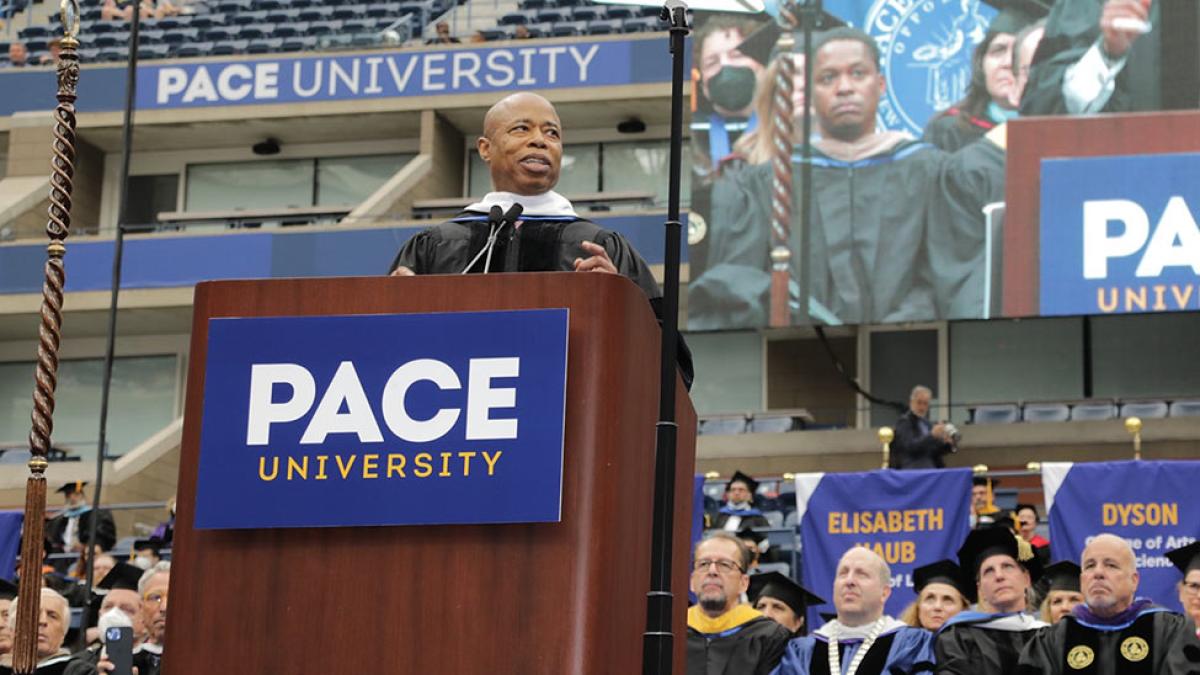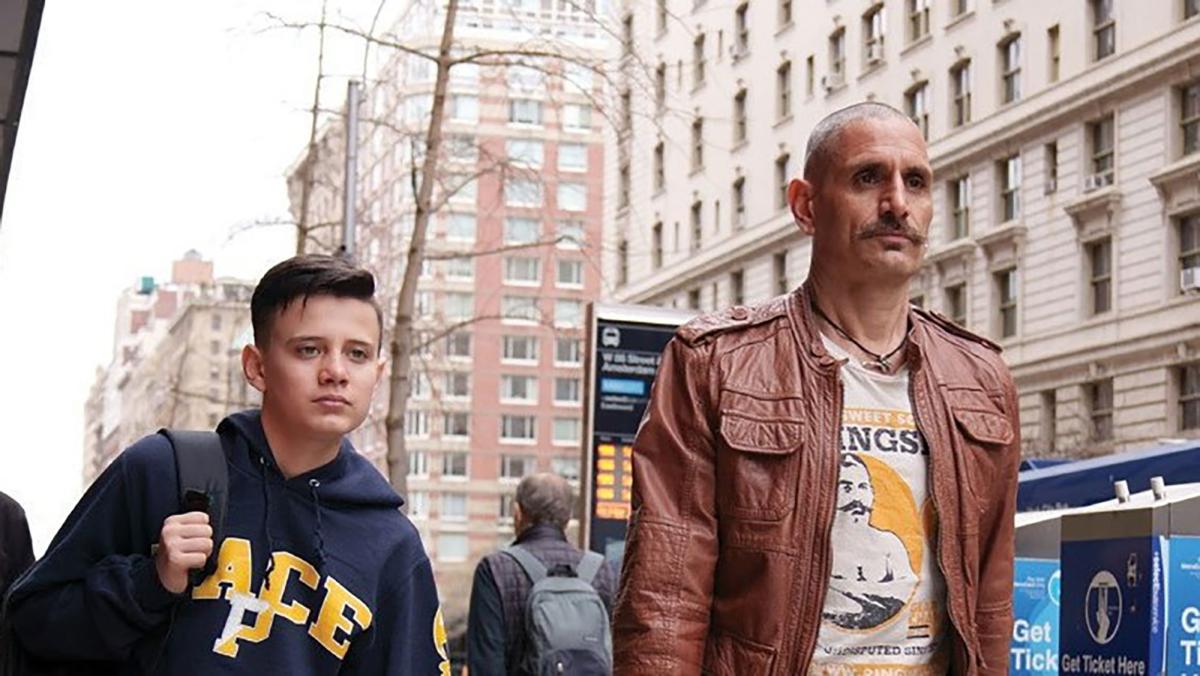
Ahead of the Class
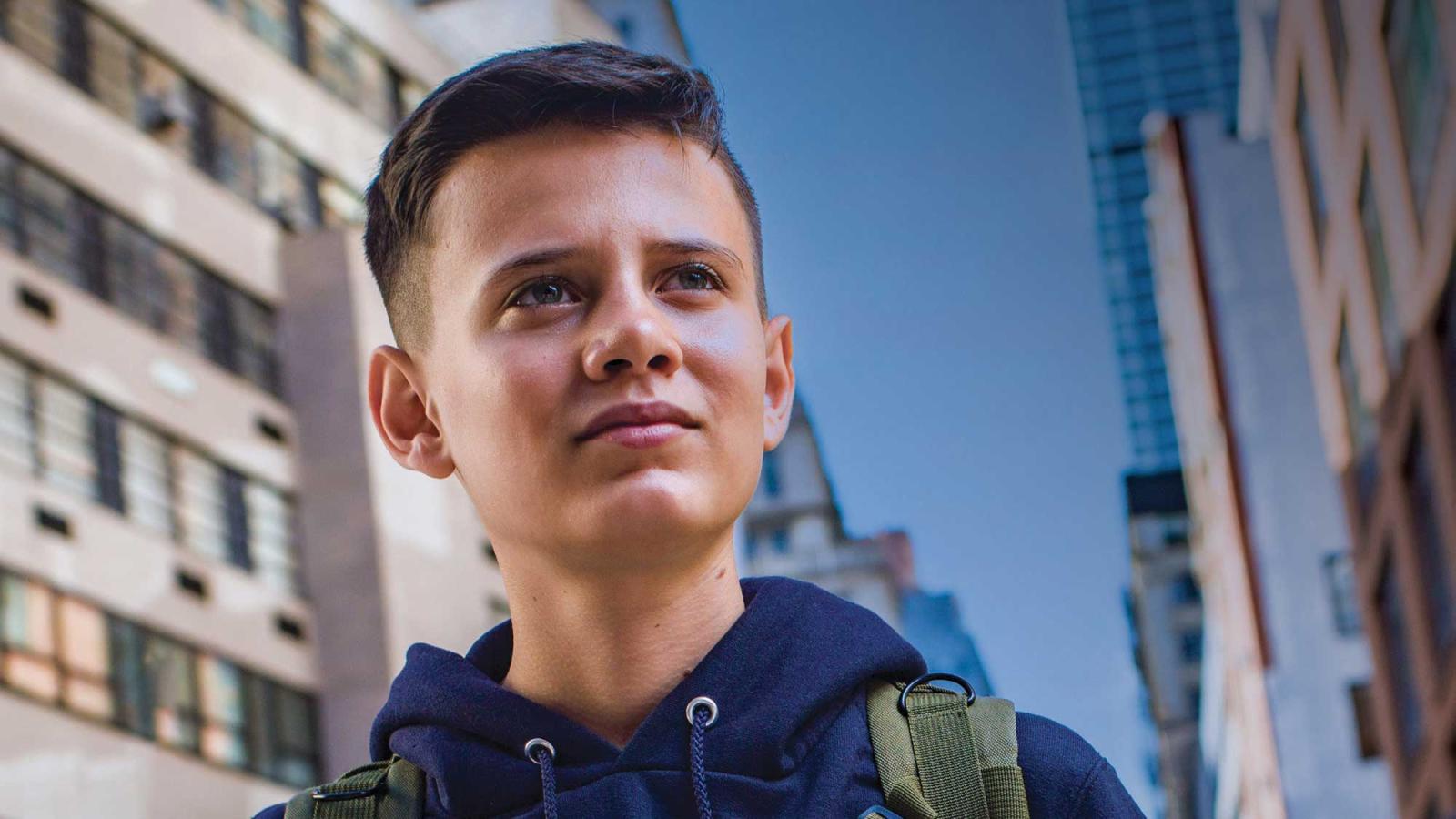
When Pace University’s Admissions team received Shahab Gharib’s application, they were thoroughly impressed. Here was a student with excellent academic credentials and a wealth of extracurricular interests—someone who would certainly make a positive impact in the Pace Community.
Yet, when it was the Pforzheimer Honors College’s turn to look over his application, they noticed something extremely odd. A clerical error? They sought to investigate.
“They called back to confirm Shahab’s date of birth,” says Bardia Gharib, the student’s father. “I said no, it’s not a typo—he’s really 12 years-old.”
This is a common through-line for Shahab, who began his undergraduate studies at Pace at the age of—again, not a typo—12 years old.
“At first, people are kind of shocked,” he says. “But after a while, I’m like anyone else.” Shahab Gharib, despite his modest, easy-going demeanor, is certainly not like anybody else.
Born in Bruchsal, Germany, Shahab moved with his parents to Hollywood, Florida, when he was a young child. Even then, it was clear that he was unusually gifted. For one, it seemed that he was already devouring books well-beyond his reading level. His teachers and school administrators took note of Shahab’s clearly advanced intellect, and in fourth grade, he moved to a gifted school. Then, as a fourth-grader, Shahab had the opportunity to take the PSATs—a trial run for the SATs, typically taken by high school juniors a few months prior to the big test. Shahab scored a 1250, in the 99th percentile for his age group.
“That was the ‘OK’ moment,” his father says. “We knew he was gifted, but this was clearly something else.”

Getting Ahead
Talking to Shahab, you instantly realize that he is, above all, curious. It’s likely this insatiable hunger for knowledge that made Shahab excel beyond his peers, even in middle school. While most sixth graders, for example, might be pining to play video games after a school day filled with algebra and world history, that wasn’t exactly the case for Shahab.
Instead, while not in the classroom, he started taking electives for high school credit through Florida Virtual School. He also made it a point to finish every book he picked up— whether that be popular favorites like the Harry Potter series (which he finished in first grade), personal favorites such as Bryce Courtenay’s The Power of One, or dense non-fiction such as The Washing of the Spears, a comprehensive history of the Zulu nation.
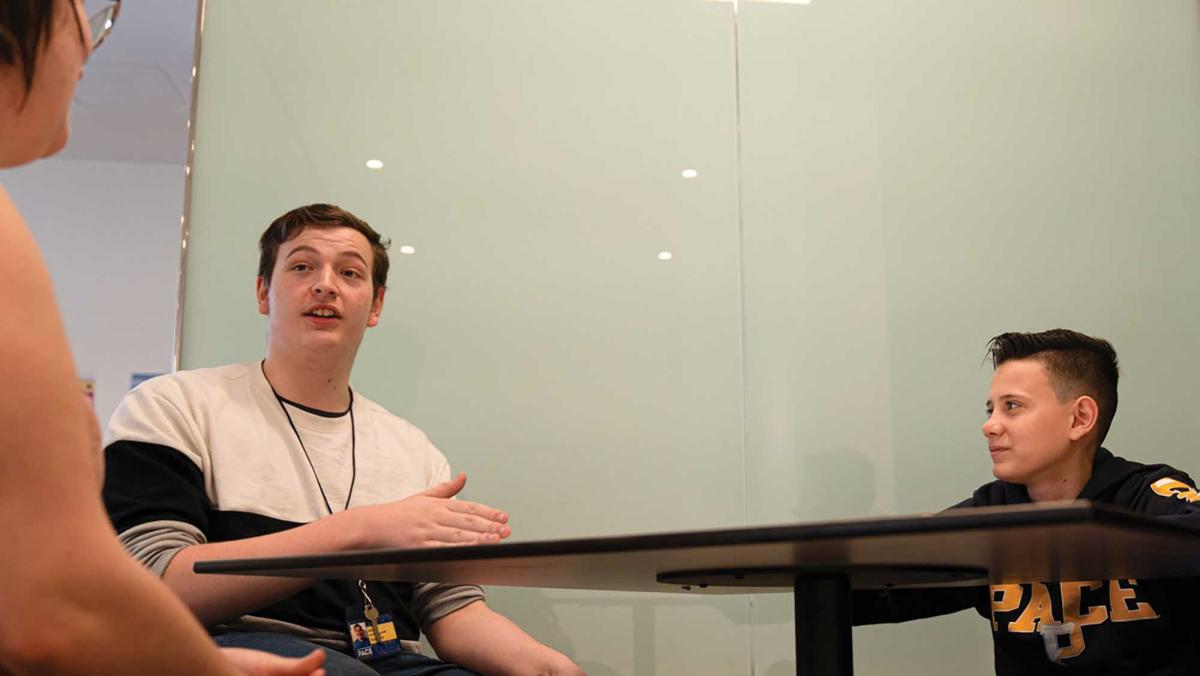
“I may have a slight reading problem,” admits Shahab.
Eventually, Shahab took so many classes through Florida Virtual School that he had, in effect, completed high school at age 12. He and his parents had a decision to make—should he actually go to high school and study subjects he had already mastered? Or was he ready to keep challenging himself intellectually and make the leap to college?
“We had said if he was going to go to college, it had to be New York,” said Bardia, referencing the endless cultural opportunities offered by the city, as well as a “real-world” crash-course the frenetic nature of Manhattan inevitably provides.
So, he applied to Pace. And he was accepted. Through credits from the Florida Virtual School and CollegeBoard CLEP exams, he even entered with 12 college credits.
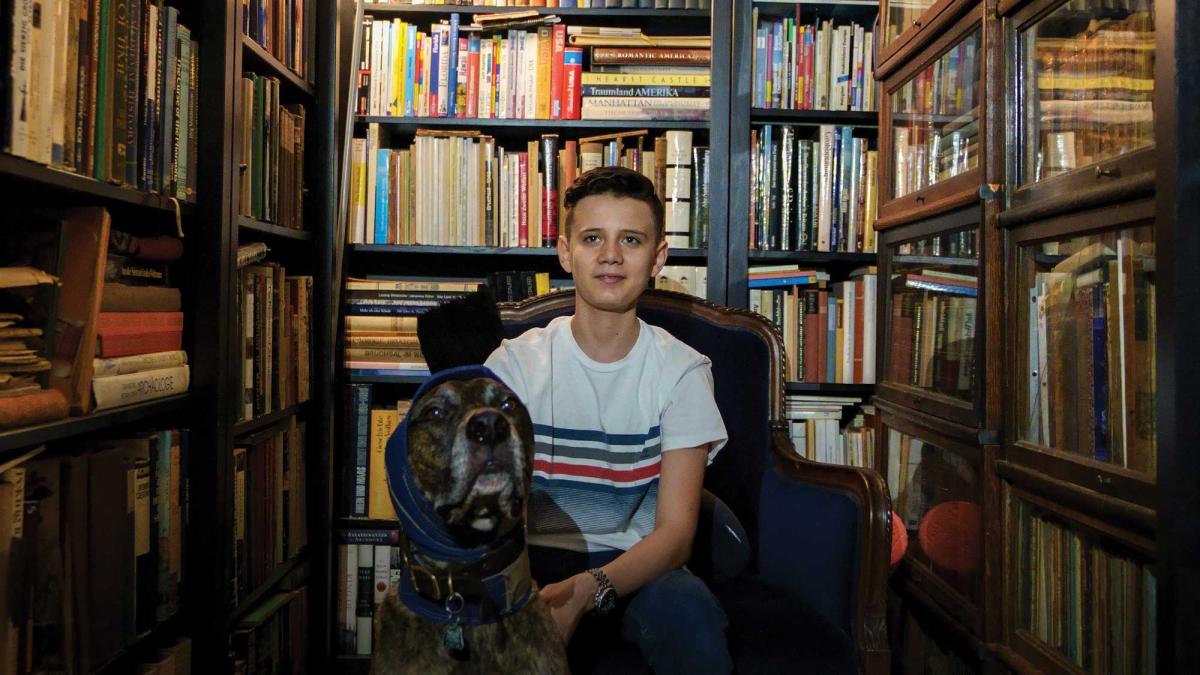
In the Classroom
In some ways, Shahab’s time at Pace has been like that of any other student. Like the rest of his peers, he diligently balances his time between a full course load and extracurriculars. He’s majoring in history, and has greatly enjoyed his courses in other disciplines, including economics, computer science, and creative writing.
He’s earned praise from professors with whom he’s developed strong relationships, including his English professor, Eugene Richie, PhD, who is also Pace’s director of creative writing. Richie has been sincerely impressed with—as he describes— Shahab’s maturity and sense of connection. Given his stellar work, Richie recommended him for the Andrew W. Mellon Pace Storytelling Fellowship for Equity and Inclusion, which Shahab was recently awarded. As part of the Fellowship, Shahab will be participating in a fully paid internship this summer with a creative organization that matches his future interests.
“I got a call from the Honors College director who said Shahab wasn’t 18 and was going to enter college early,” Richie says. “He came to class, and he was brilliant. He talked all the time, and he really engaged with the material.” After enrolling in a modern and contemporary international poetry course—in which, Richie notes, Shabab provided a unique perspective given his early upbringing in Germany—he then signed up for an Honors course focusing on poetry, memoir, and creative fiction.
After writing a few poems, the class moved onto the memoir, during which Shahab revealed his story more in depth—to the great surprise of his classmates and even his professor, who had assumed he was closer to 18. “When he did the memoir, he revealed to the other students that he could’ve gone to high school but decided that he’d rather start college because he was able to do it,” said Richie. “Then I realized, wow, he must be 13 or 14 years old—I had no idea!”
“If someone tells him ‘You can’t—you’re too young, you won’t be able to’—that’s a cue for him, and he’ll prove them wrong,” —Bardia Gharib.
…And Beyond
If your impression is that Shahab camps out in the library 24/7, you’d be wrong. While clearly prolific in his studies, he’s also made time for a number of activities outside of the classroom. Last fall, he got involved with Pace’s student-run radio station, WPUB, and started hosting his own radio show. Titled Books, Ballads, and Blasts from the Past, the show uses reading and history as a conversation starter and introduces the world of Shahab to a wider audience. And, as WPUB asks: Everyone always wants to know what a 13-year-old has to say about history, books, and all genres of music, right?
“Alliterations are a running joke in my family,” he says, explaining the title of his radio show. “The experience so far has been really great—I usually bring a friend who has a different perspective on a lot of things, and it has been a lot of fun.”
He’s also punching above his weight—literally. The sport of boxing has long been a family endeavor. Bardia, a boxer who ran a boxing gym in Bruchsal, has been a source of inspiration and encouragement for Shahab. During their time in Florida, the Gharibs were members of a boxing gym, where Shahab met Max Schillinger, who is now himself a student at Pace’s Lubin School of Business. The two bonded over their admiration of hip-hop artists, which Schillinger joked that Shahab was definitely too young to be listening to.
“Back when we met, he told me he was in 10th grade,” said Schillinger. “He was 11 years old. I was in disbelief.”
The two ended up keeping in touch after the Gharib family left Florida for New York City, and Schillinger was entering his senior year of high school. Schillinger, unbeknownst to Shahab at the time, was also looking to study in New York City and coincidentally was also accepted to Pace last spring. Although the two didn’t plan to attend college together, their continued friendship has blossomed.
“We ran into each other in the elevator on the second day of school,” said Shahab. “I said, Max! We need to do some boxing.”
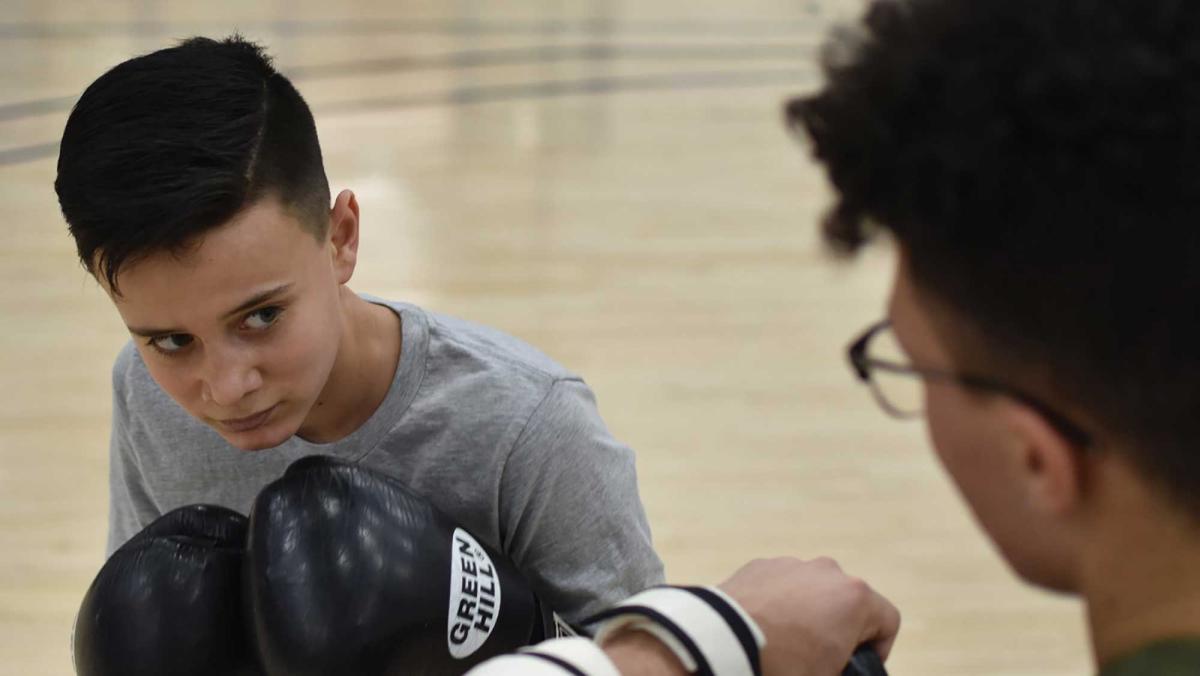
And so they have. The pair recently started Soulfighter NYC, a Pace boxing club that meets twice a week in either the Pace gym or in City Hall Park. Each class spans about an hour, and is led by Bardia, who teaches students the basics of boxing, footwork, and strategy—while making sure nobody is skimping on the push-ups. At a recent session, Shahab, despite being clearly younger than the other dozen or so other Pace students, did not seem remotely out of place. In fact, while sparring with his partner, he was both focused on his own footwork and technique and encouraging of his partner, once again suggesting a maturity beyond his years. At the end of the training session, he lay down on the floor exhausted, in a way only possible after a grueling but rewarding workout.
Schillinger, while not surprised Shahab is able to excel in this environment just like he did in Florida, is no less impressed. “What seems like an abnormality is possible, if you look at where hard work can get you,” said Schillinger.
Going Places
With Shahab, there is often a question about his future—if someone who was born in 2008(!) has been able to accomplish so much already, what will he be able to do by 2030? 2040? And although some might want to put grand aspirations on his shoulders, Shahab, with the help of Bardia, seems to be quite adept at not looking too far down the road. Because he is looking to graduate next year—early of, course— his primary concern is focusing on his plans immediately after graduation. After a few long conversations with his family, professors, and mentors, he has decided he would like to attend law school. He recently applied to Pace’s Elisabeth Haub School of Law, where he hopes to take advantage of the 3+3 program, in which students can earn their BA and JD in only six years. Although he’s not entirely sure what he’d like to study, he notes the environmental law program, currently ranked the best in the country, holds great interest.
Shahab is also excited for another element of a typical university experience. While it’s not unusual for college students to live at home, it is a bit unusual for their parents to regularly accompany them to campus. Because of his age, Shahab who lives with Bardia and mom, Amorita, on the Upper West Side, goes back and forth to campus with Bardia. He acts as a chaperone of sorts—bringing Shahab down to One Pace Plaza each day on the subway, providing guidance, and helping ensure Shahab grows socially and culturally as well as academically.
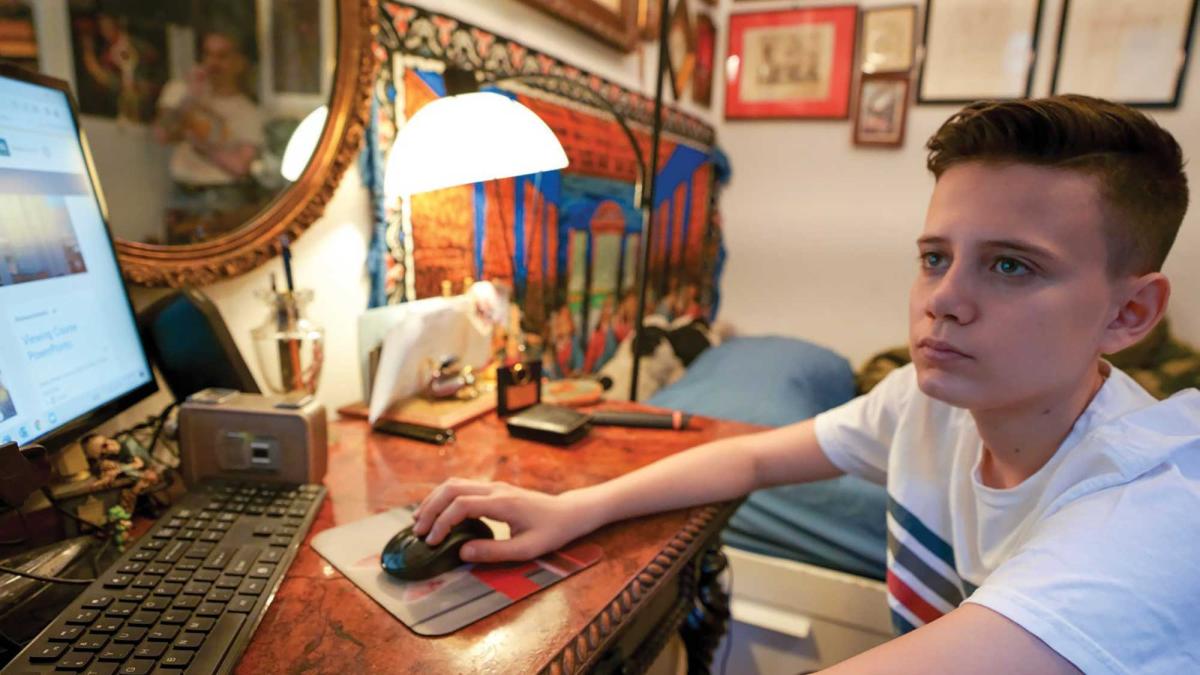
At law school however, the plan is for Shahab to further his growth and live in the dorms. Although Bardia will certainly be a little bit sad to not be in the company of Shahab each and every day, he’s also incredibly proud of what his son has been able to accomplish. He looks at Shahab living without parents as an essential aspect of growing up. And even though Shahab will only be 15 when he starts law school, it’s safe to say his life experience is a bit beyond his years.
“People ask, ‘You bring your son to school?’” jokes Bardia. “No, my son brought me here.” And his son is clearly going places. “If someone tells him ‘You can’t—you’re too young, you won’t be able to’—that’s a cue for him, and he’ll prove them wrong,” Bardia says.
Shabab smiles. “I may be a tad competitive,” he says.
More from Pace Magazine
Through the U.N. Millennium Fellowship, three Pace students are innovating the way food insecurity is addressed on campus with the Fare Trade program.
With the help of a nearly $2M federal grant, this inaugural cohort of nursing students is poised to change the face of patient care.
On Monday, May 16, Pace held the largest Commencement ceremony in our history to celebrate the classes of 2020, 2021, and 2022 at the USTA Billie Jean King National Tennis Center in Queens, New York.

